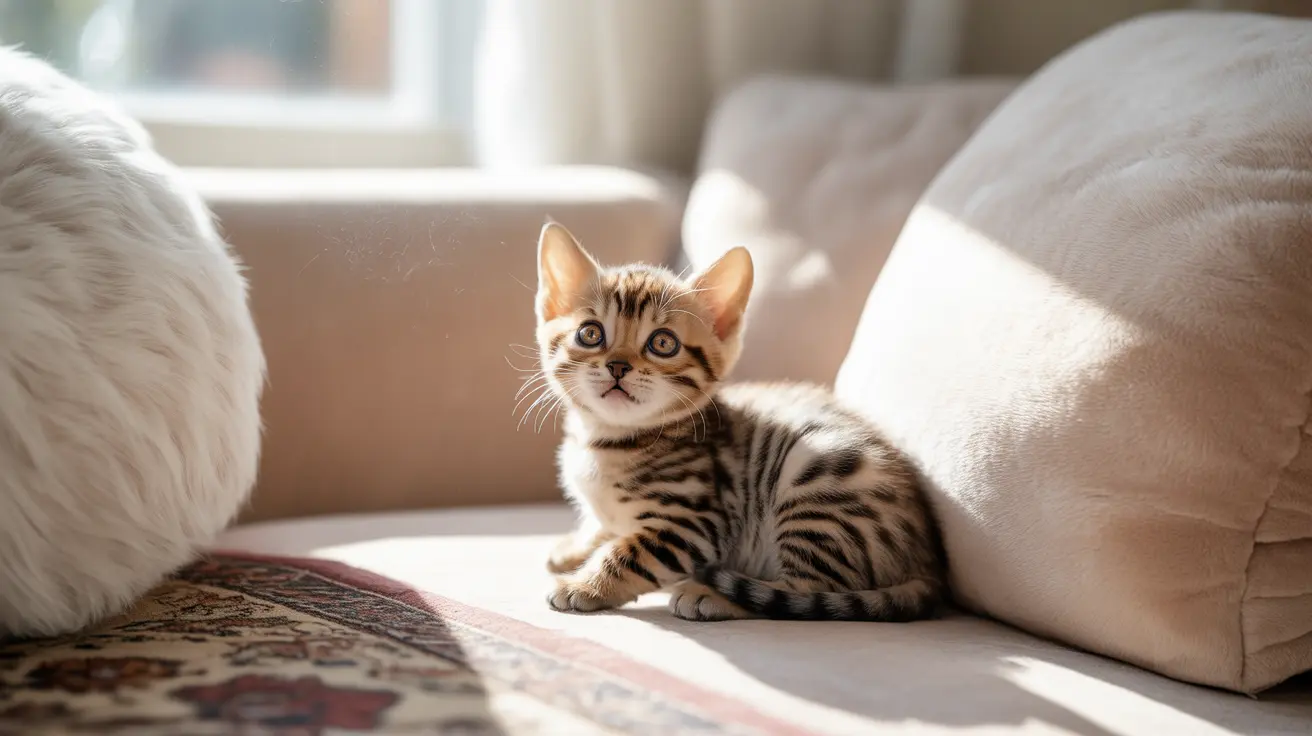The First Sounds: Newborn Kitten Vocalizations
Kittens start meowing within their first few days of life, producing soft, high-pitched sounds often described as "mewing." These initial vocalizations are remarkable because they occur even though newborn kittens are both deaf and blind. These early sounds serve as crucial survival mechanisms, helping kittens alert their mother when they need attention, warmth, or feeding.
Early Developmental Stages of Kitten Sounds
The Neonatal Period (0-2 Weeks)
During their first two weeks, kittens rely entirely on these primitive vocalizations. Their mews are typically quiet and high-pitched, serving primarily as distress signals when separated from their mother or experiencing discomfort.
The Transitional Phase (2-4 Weeks)
As kittens enter weeks 2-4, their vocal abilities begin to expand. This period coincides with their eyes and ears opening, allowing them to become more aware of their environment and respond to sounds around them. Their meows become more distinct and varied during this stage.
Developing Voice and Communication
The Socialization Period (3-7 Weeks)
This crucial phase marks significant advancement in kitten vocalization. Kittens start experimenting with different sounds, including chirps, trills, and more complex meows. They use these sounds to interact with their littermates and mother, developing their unique vocal patterns.
The Juvenile Stage (2-4 Months)
By this age, kittens typically begin transitioning from infantile mewing to more adult-like meows. They start developing their individual "voice" and may show increased vocalization when interacting with humans.
Understanding Different Types of Kitten Meows
Kittens develop various types of vocalizations, each serving different purposes:
- Short, high-pitched meows: Usually indicates excitement or greeting
- Long, drawn-out meows: Often signals hunger or demand for attention
- Repeated meows: May indicate anxiety or urgent needs
- Soft chirps or trills: Common during play or exploration
Factors Affecting Kitten Vocalization
Several factors influence how and when kittens develop their vocal abilities:
- Genetic predisposition (some breeds are naturally more vocal)
- Environmental stimulation
- Social interaction with humans and other cats
- Physical development of vocal cords and hearing apparatus
Frequently Asked Questions
When do kittens start meowing after they are born?
Kittens begin vocalizing with soft mews within the first few days after birth, even though they cannot yet hear themselves.
Why do newborn kittens mew if they are deaf and blind at birth?
This instinctive behavior is hardwired into their survival mechanisms, allowing them to signal their mother when they need care, despite their sensory limitations.
At what age do kittens stop mewing for their mother and shift to adult meowing?
Kittens typically stop mewing for their mother around 2-3 months of age, transitioning to more adult-like meows as they become more independent.
How does a kitten's hearing development affect its meowing and vocalization?
As kittens gain hearing ability around 2-3 weeks of age, they begin modulating their vocalizations more effectively, leading to more varied and controlled sounds.
What do different kitten meows mean, and how can I understand what my kitten is communicating?
Kitten meows vary in pitch, length, and intensity to communicate different needs. Short meows often indicate greeting or curiosity, while longer or repeated meows may signal hunger or distress. Observing the context and your kitten's body language helps interpret their specific needs.
Conclusion
Understanding when and how kittens start meowing provides valuable insight into feline development and communication. From their earliest mews to more complex vocalizations, each stage represents important milestones in a kitten's growth. By recognizing these developmental phases, cat owners can better understand and respond to their kitten's needs throughout their growth journey.






